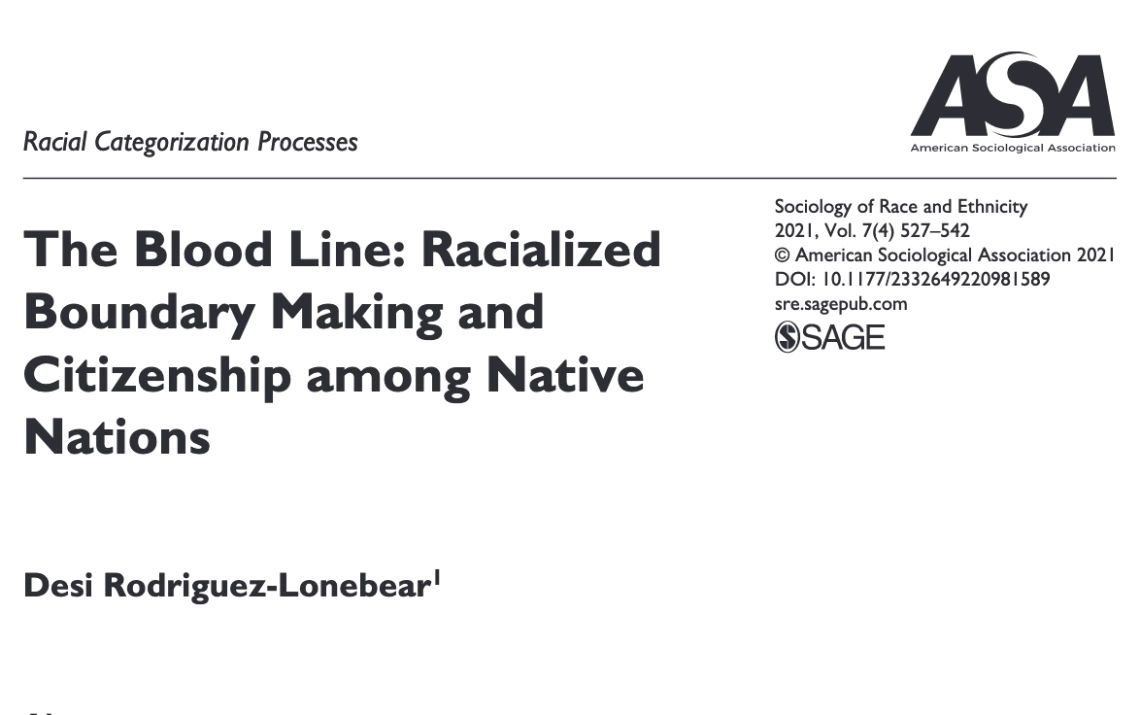Blood informs a central racial ideology in the United States that has historically been used to racialize many different groups. American Indians (AIs) are the only population in the United States for whom the racial logic of blood remains codified as a means of conferring collective belonging. This article explores how AI blood quantum persists as both a race-making and nation-making instrument. I ask two research questions: How does blood quantum persist as a metric of tribal citizenship? Are tribal citizenship criteria connected to contemporary demographic, geographic, political, and economic forces? I first extend racial formation theory to describe blood quantum as a “racial project” in its use to both construct tribal identities in explicitly racial ways and determine access to political, social, and material resources. I also consider how the sovereign right of Native nations to confer tribal citizenship is evident in the observed variation among citizenship rules. Using data from more than 80 percent of AI Native nations in the contiguous United States, I employ a multinomial regression model to evaluate tribal citizenship variation. I have two central findings: (1) although tribal citizenship criteria are starting to depart from the racializing policies of the settler-colonial state, blood quantum thresholds remain particularly durable; and (2) variation in tribal citizenship criteria is meaningful by geographic region, tribal governance status, and Indian gaming. Against a backdrop of growing racial diversity in the United States, I discuss implications of the blood line on tribal citizenship boundaries and tribal sovereignty.
Additional Information
Rodriguez-Lonebear, Desi. “The Blood Line: Racialized Boundary Making and Citizenship among Native Nations.” Sociology of Race and Ethnicity, vol. 7, no. 4, Oct. 2021, pp. 527–542, doi:10.1177/2332649220981589.



